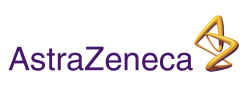Advocacy
1 minute read
Legislative advocacy is CTD’s primary focus. During and outside of the Texas’ biennial legislative session, we work with key decision makers, state agencies, and other advocacy organizations to promote statewide policies that will protect or benefit Texans with disabilities. We have influenced efforts that have added close to $5 Billion in state budget appropriations supporting people with disabilities, and we have built a solid reputation as advocates and policy experts at the state Capitol.
As a coalition, collaboration is key to the success our policy work. We partner on a number of policy issues with other disability organizations, belong to dozens of workgroups and coalitions, and engage in partnerships across movements.
Get Involved
The 88th Texas Legislature convened Tuesday, January 10, 2023 and adjourned Monday, May 29, 2023, with an unprecedented four special sessions running through the end of the year. 2024 is an interim year, in which the Legislature does not meet, but there is still plenty to do!
Join our advocacy team every other Monday on Raise Your Voice to hear about what we're working on and how to get involved.
Read up on our Legislative Priorities







